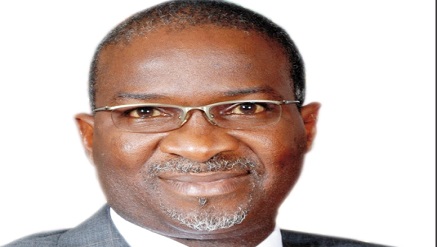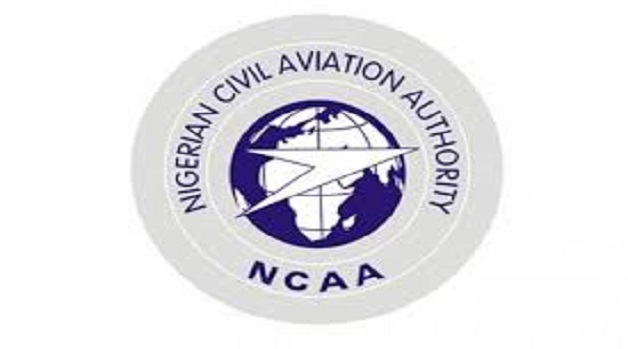News
Fashola to Commission Candel’s Agrochemicals Manufacturing Plant

The Candel Company Limited, Nigeria’s leading agricultural inputs development and Distribution Company has announced that its integrated manufacturing facility for crop protection chemicals and foliar fertilizers at the Lekki Free Zone, Lagos is set for commissioning by Mr. Babatunde Fashola, executive governor of Lagos State.
The event which holds on Tuesday, May 26th means the Multi-Billion Naira project which is only in its first phase when completed will deliver a facility with a capacity for 80 million liters of formulated products per annum.
It will enable Candel to deliver solutions most suited to Nigeria’s tropical climate and peculiar farming systems.
There is currently no local production of crop protection agrochemicals in Nigeria with over $400 million in foreign exchange expended annually to import them.
Crop protection chemicals protect crops from weeds, pests and diseases when in the field, during transportation and in the store and are helping the quest for increased crop yields and better preservation by Nigerian farmers.
Candel’s factory is configured to produce products specially targeted at small scale farmers as well as customized formulations with different surfactant levels for large scale farmers.
The facility has five process plants for Soluble Liquids (SL), Emulsifiable Concentrates (EC) and Suspension Concentrates (SC) of products from diverse chemical families.
It has sufficient capacity to supply Candel’s own distribution network in Nigeria and Ghana with enough spare capacity for third parties in Nigeria and overseas. The target of the international market influenced its location at the Lekki Free Zone.
Construction of the production facility began in early 2014 after an extensive Environmental Impact Assessment (EIA) exercise under the full supervision and guidance of the Federal and Lagos State Ministries of Environment.
Charles Anudu, chairman of The Candel Company underlined the company’s innovative and entrepreneurial spirit as well as the many years of experience in the field of crop protection and nutrition thus: “Our company has a reputation for being at the leading edge of innovation and entrepreneurship that have helped to frame our industry in the context of the local realities. Our world class factory is geared towards tailor-made solutions that address the peculiarities of our farming systems thereby improving the industry economics and competitiveness of West Africa’s crop farmers”.
On his part, Mr. Emmanuel Kattie, managing director of Candel said, “We are determined to restore the quality standard that has since declined in our industry by ensuring that every product that is made in our facility meets the highest international standard for such a product. Nigerian farmers will get peace of mind when they buy any of the products made in this factory.
“We are very pleased that Candel chose the Lekki Free Zone to site its pioneering project and happy with the rapid progress and quality of construction so far. Projects of this nature create highly skilled and entry-level job opportunities for our local communities which is a major benefit of a Free Zone like ours. We will continue to ensure that the framework conditions are attractive for serious investors like Candel, especially with our state-of- the-art infrastructure” enthused Mr. Yonghua Ding, the Managing Director of the Lekki Free Zone Development Company (LFZDC)”.
The Candel Company Limited is one of West Africa’s leading companies offering an outstanding range of products including high value seeds, innovative crop protection solutions and market access support services that improve the industry economics of West Africa’s farmers.
With an extensive footprint in Nigeria and Ghana, and a major agrochemical production facility at the Lekki Free Zone, Lagos, Nigeria, Candel is playing a major role in addressing the peculiar farming systems of West Africa’s farmers, improving the quality of products offered to them as well as reduce the pressure on foreign exchange to import these products, which are often of questionable quality.
News
AFC Appoints Ireti Samuel-Ogbu as Chair of Board of Directors

Africa Finance Corporation (AFC), the continent’s leading instrumental infrastructure solutions provider, has announced the appointment of Mrs Ireti Samuel-Ogbu as Chair of its Board of Directors. She succeeds Mr. Emeka Emuwa who has completed 12 years of meritorious service to the Corporation.

Mrs. Samuel-Ogbu brings a wealth of experience spread over three decades leading and transforming the banking sector in Europe, Middle East, and Africa. Until recently, she led Citi’s institutional businesses in Nigeria and Ghana, with oversight across Banking, Markets and Services.
During this period, she steered the franchise through significant macroeconomic and regulatory headwinds, strengthening its strategic momentum and resilience.
Her international career within Citibank included senior leadership roles across over 50 countries in the Europe, Middle East, and Africa region, during which time she worked in the United Kingdom, Nigeria, and South Africa.
Mrs. Samuel-Ogbu has extensive boardroom experience including Citibank Nigeria where she was a Non-Executive Director for 6 years and Chair of the Risk Committee prior to becoming the Managing Director.
She also served on the board of CHAPS Clearing UK, the high value payment system now operated by the Bank of England and a UK-based charity, Opportunity International.
Her extensive experience and unwavering dedication to the advancement of Africa make her a valuable asset to AFC at a time when the Corporation is more committed than ever to accelerating Africa’s transformation through bold investments, innovative financing models and catalytic partnerships.
AFC recently delivered a record-breaking FY2024 financial performance, with total revenue increasing by 22.8% to US$1.1 billion, surpassing the US$1billion milestone for the first time.
This strong performance was driven by several transformational projects including acting as the Lead Project Developer for the Lobito Corridor, a transformative multi-country transport network connecting Angola, Zambia and the Democratic Republic of Congo (DRC), financing of the expansion of the Kamoa-Kakula Copper Complex in the DRC — one of the world’s highest-grade, low-carbon underground copper mines and financing support for the commissioning of the Dangote Refinery, the largest in Africa.
Speaking on the appointment, Samaila Zubairu, President& CEO of AFC, said: ” We are delighted to welcome Mrs Ireti Samuel-Ogbu as Chair of the Board.
Her wealth of experience, visionary leadership and deep understanding of Africa’s financial landscape will be invaluable as we navigate our next phase of growth- expanding our impact, mobilising urgently needed capital and delivering transformative projects that enable inclusive and sustainable prosperity across the continent.”
Mrs Ireti Samuel-Ogbu commented: “I am honoured to take on the role of Chair at AFC, an institution that serves as a trusted bridge between international capital and Africa’s dynamic growth opportunities.
I look forward to working closely with the board, management, and all stakeholders to advance the Corporation’s mission and strengthen its role as the leading provider of strategic, investment-driven solutions that unlock Africa’s full economic potential.”
News
NCAA Tightens Regulations: Unlicensed Airports to Face Penalties in 2026

Nigeria Civil Aviation Authority (NCAA) has announced that local airports operating without valid permits will face sanctions beginning January 1, 2026.

Godwin Balang, director of aerodrome and airspace standards at the NCAA, made the announcement on Monday during the Airstrip Owners and Operators Stakeholders Engagement Programme held in Lagos.
“This is not a threat but a collective regulatory commitment,” Balang said. “Evolving aviation dynamics require us to update our regulatory strategies to achieve more impactful results.”
Balang revealed that out of the 92 airstrips in the NCAA database — which includes operational, non-operational, and those under construction or rehabilitation — only a few currently hold valid operational permits.
He noted that 68 of the airstrips are federal facilities managed by the Ministry of Aviation and Aerospace Development, while 24 are owned by private individuals or organisations.
“This division highlights the necessity for stronger collaboration between the NCAA and the ministry to clearly define regulatory and operational roles,” he added.
Citing section 71(3)&(4)(a) of the Civil Aviation Act 2022, Balang stressed the NCAA’s legal mandate to certify aerodrome operations and set minimum safety standards.
“We must address emerging threats while maximizing the use of airstrips to bolster Nigeria’s socio-economic development,” he said.
Chris Najomo, director-general of the NCAA, said the stakeholder engagement was organised to enhance communication and ensure compliance with the law.
“Our goal is to clarify construction, operational, and safety requirements, identify challenges, explore development partnerships, and promote adherence to global best practices,” Najomo stated.
He disclosed that the NCAA is developing new, customized regulations for airstrips. “While ICAO Annex 14 standards are international benchmarks, they are sometimes too stringent for smaller airstrips.
“Our tailored regulatory framework will support general aviation growth without compromising safety,” Najomo said.
He emphasized that the initiative aligns with the NCAA’s ease-of-doing-business principles and supports the minister’s five-point agenda to advance the sector.
News
US Identifies Corruption as Key Barrier to Trade and Investment in Nigeria

United States government has identified corruption as the primary obstacle to trade and investment in Nigeria, as outlined in the 2025 National Trade Estimate Report on Foreign Trade Barriers.

The report, issued by the Office of the United States Trade Representative, highlights corruption, lack of transparency in tender processes, and delays in approving import permits as significant challenges faced by U.S. companies operating in Nigeria.
U.S. firms reportedly encounter inappropriate demands for “facilitative” payments, while efforts to combat corruption are hindered by inter-ministerial conflicts and partisan politics.
The report also raises concerns about the Nigerian justice system’s ability to effectively handle corruption-related cases.
Another major issue is Nigeria’s slow approval of import permits for American agricultural products, which has been a longstanding trade barrier.
Since 2019, the U.S. has sought to negotiate permits for various food and agricultural exports, but progress has been limited.
Additionally, inconsistencies in Nigeria’s implementation of technical regulations and sanitary measures create confusion and hinder compliance.
The report criticizes Nigeria’s high combined duties and fees on numerous tariff lines, exceeding ECOWAS limits on some items.
These systemic issues, combined with challenges in customs administration, contribute to the difficulties of doing business in Nigeria.

 Telecom1 day ago
Telecom1 day agoMeta Challenges Nigerian Tribunal’s $220M Fine over Data Breaches

 Broadcasting1 day ago
Broadcasting1 day agoAI and Cybersecurity: Balancing Innovation with Caution

 E-Financial1 day ago
E-Financial1 day agoSupreme Court Sets Aside N22 Trillion Judgement against Union Bank

 E-Business1 day ago
E-Business1 day agoFG Warns Nigerians Against Growing Threat of Cyber Slavery in West Africa

 News1 day ago
News1 day agoEFCC Bans Cash above $10,000 from Leaving Nigeria without Declaration

 E-Financial1 day ago
E-Financial1 day agoUBA Envisions Footprint in over 100 Countries

 General News1 day ago
General News1 day agoAfe Babalola University Partners with New Horizons to Integrate 4IR Skills into Academic Curriculum

 E-Business1 day ago
E-Business1 day agoNCC Vows to Tackle Online Infringement, Block Illegal Music Websites
















